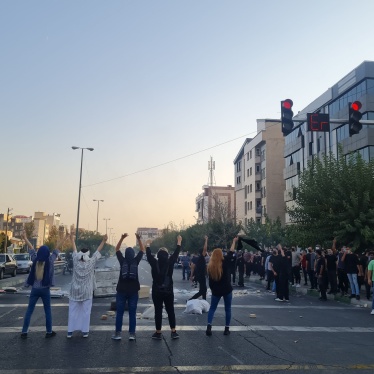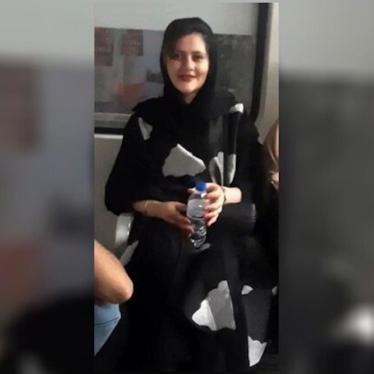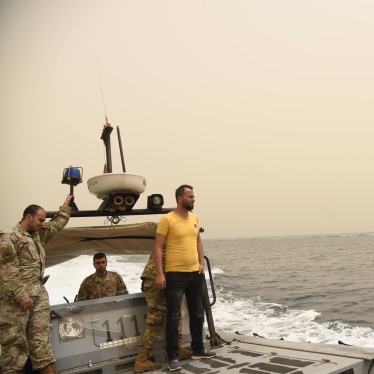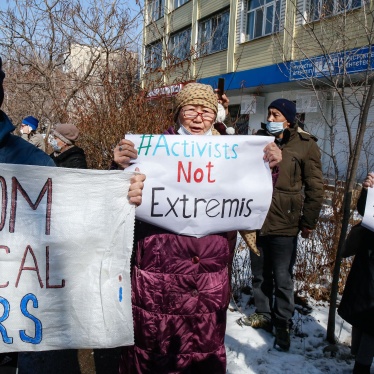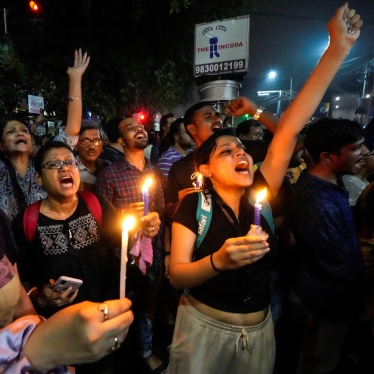Ngofeen Mputubwele could never have planned his route to becoming host of the new Human Rights Watch podcast, Rights & Wrongs, but it would be hard to find anyone better suited.
The son of immigrants from the Democratic Republic of Congo, Mputubwele was born in Indiana, where his father was a doctoral student. When his father was offered a professorship at Lane College, among the Historically Black Colleges and Universities, the family moved to Jackson, Tennessee. Mputubwele’s high school, which had been desegregated through busing but remained socially segregated, provided a crash course in US race relations – though it remained confusing to the son of Congolese immigrants.
Mputubwele’s father grew up during Belgian colonial rule in what was then known as the Belgian Congo, and later as Zaire. He managed to get an education beyond the 6th grade by embracing the church (the only way available), and eventually received a Fulbright to study linguistics at Indiana University. He went on to Purdue and received a doctorate in comparative literature. The elder Mputubwele steeped his children in anti-colonial doctrine from an early age. Ngofeen and his two brothers were given African names, and the comic books in the Mputubwele household included those about Toussaint Louverture, who led the Haitian Revolution against the Atlantic slave trade.
“We were steeped in Blackness,” Mputubwele says. “Toni Morrison, Malcolm X, Martin Luther King – we read all of these books. But culturally, we were very Congolese. We ate our food at home with our hands and we spoke Kikongo and French.”
But to the teachers and students at Jackson Central-Merry, Ngofeen was just another Black kid at a segregated high school in the American South, which made for alienating and lonely teenage years. At times, American Blackness felt illegible, he says, but by the end of high school, he began to find his own place inside Black American life.
Mputubwele soon returned to Indiana, where he went on to study music at Ball State University. It was there, in 2005, that he saw the film “Invisible Children,” a documentary about the abduction of children in East Africa whom the Lord’s Resistance Army uses as child soldiers.
“How in the world did I get to grow up here?” Mputubwele asked himself.
He developed an interest in human rights and made his first trip to the Democratic Republic of Congo. He went on to get a master’s degree in international development from the University of Pittsburgh. The master’s degree and Africa trip led to a desire to study something concrete – to have a skill, as Mputubwele describes it – which resulted in a law degree from the University of Pittsburgh School of Law. That, in turn, led him to practice law for several years, though Mputubwele soon left to forge his path in podcasting.
He moved to Brooklyn, New York and got jobs at the podcasting companies Gimlet Media and Stitcher, and then at the New Yorker magazine. The net result is an experienced podcast host with a long-standing interest in human rights, expertise in international human rights law and the lived experience of growing up in an immigrant family from a country at war.
“It’s funny, when I was getting my master’s degree, I would have been super happy to get an internship with Human Rights Watch,” Mputubwele said. “And now here I am, 15 years later, hosting a podcast for Human Rights Watch. And I’m like, so that worked.”
Catch up on the latest episodes of Rights & Wrongs here.

